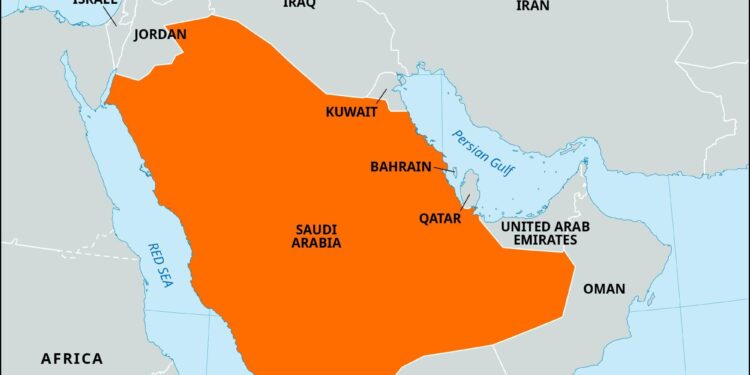Riyadh Hosts the Inaugural Future Hospitality Summit, Pioneering Saudi Arabia’s Tourism Evolution
Riyadh, Saudi Arabia – Today marks the commencement of the Future Hospitality Summit in Riyadh, a landmark gathering that brings together global hospitality experts, innovators, and key stakeholders. This summit is dedicated to exploring groundbreaking trends and sustainable innovations that will redefine tourism and hospitality across Saudi Arabia and its neighboring regions. As part of the ambitious Vision 2030 framework, Saudi Arabia is rapidly emerging as a premier travel destination. The event offers an invaluable forum for exchanging ideas, forging strategic partnerships, and driving investment opportunities aimed at accelerating growth within the hospitality sector. Participants can anticipate an engaging agenda featuring influential keynote addresses, expert panels, and hands-on workshops designed to address both current challenges and future prospects in this dynamic industry.
Transforming Saudi Arabia’s Hotel Industry: Innovation Meets Sustainability
The Future Hospitality Summit has quickly become a crucial venue for unveiling transformative approaches shaping Saudi Arabia’s hotel market. A dominant theme throughout the event is sustainability—major hotel chains are committing to integrating green technologies that align with national environmental objectives under Vision 2030. Key developments spotlighted include:
- Advanced Smart Technologies: Deployment of Internet of Things (IoT) devices to elevate guest services.
- Immersive Guest Experiences: Crafting personalized stays that resonate deeply with visitors.
- Cultural Synergy: Collaborations with local craftsmen to embed authentic heritage into hotel offerings.
Additionally, innovative architectural concepts such as modular building techniques and adaptive reuse of historic structures are gaining traction. The rising demand for luxury wellness resorts also reflects travelers’ increasing focus on health-conscious experiences during their journeys.
| Emerging Trend | Description |
|---|---|
| Digital Innovation | Utilizing technology platforms to optimize operations while enhancing guest engagement. |
| Sustainable Operations | Adopting energy-saving measures aimed at reducing environmental footprints. |
| Cultural Integration | Engaging local communities to provide guests with genuine cultural immersion. |
Expert Perspectives on Sustainability & Technological Progress at Riyadh Summit
The summit featured compelling discussions from leading figures emphasizing how sustainability intertwines with cutting-edge technology in reshaping hospitality practices globally. James Dawson, CEO of Global Hospitality Group, underscored the critical need for eco-conscious strategies: “Sustainability transcends trends—it is fundamental for our industry’s future.” He highlighted how renewable energy adoption combined with waste minimization can substantially boost operational efficiency.[1]
Amina Al-Sabah—a renowned specialist in hospitality tech—shared recent findings revealing that nearly 78% of consumers now prefer brands demonstrating strong environmental responsibility.[2] She advocated implementing intelligent systems like AI-driven resource management tools which have proven effective in curbing energy use within hotels by up to 30%. Examples include smart thermostats optimizing heating/cooling cycles and water recycling technologies reducing consumption by nearly 40%, thereby aligning profitability goals with ecological stewardship.
| Technology Solution | Main Functionality | Sustainability Benefit |
|---|---|---|
| Smart Thermostats | Energize climate control systems | Lowers electricity usage by approximately 30% |
| Sophisticated Water Recycling Systems | Pursue efficient water reuse | Cuts water consumption by up to 40% |
| A.I.-Powered Data Analytics | Tune operational workflows | Diminishes waste through optimized resource allocation |
The dialogue emphasized collaborative efforts among stakeholders as essential drivers toward embedding these innovations seamlessly into everyday operations across hotels nationwide.
Maximizing Growth Potential: Strategic Guidance for Investors & Operators in Saudi’s Hospitality Market
The rapid expansion of tourism under Vision 2030 presents unparalleled opportunities within Saudi Arabia’s hospitality landscape. To thrive amid evolving consumer expectations—and fierce competition—industry players must adopt forward-thinking marketing tactics tailored toward international audiences.
- Diversified Digital Marketing: Harness social media channels alongside data analytics tools enabling precise targeting based on traveler behavior patterns.
- Sustainable Brand Positioning: Highlight eco-friendly credentials prominently as more tourists prioritize green travel options.
- Cultural Partnerships: Collaborate closely with regional artisans or culinary producers fostering authentic experiences while supporting local economies.
- Lifelong Learning Initiatives: Implement ongoing staff training programs focused on sustainability best practices ensuring consistent service excellence aligned with global standards.
This multi-pronged approach not only enhances brand appeal but also builds resilience against market fluctuations by embedding adaptability into business models.
Conclusion: Charting a Sustainable & Innovative Path Forward for Saudi Arabian Hospitality
As Riyadh hosts this pivotal summit bringing together visionaries from around the world, it becomes clear that innovation coupled with responsible stewardship will define tomorrow’s hospitality sector here. With sustained emphasis on technological integration—ranging from AI-powered solutions to smart infrastructure—and unwavering commitment toward sustainable development goals outlined under Vision 2030,
Saudi Arabia stands poised not only as a regional leader but also an influential player on the global tourism stage.Stay connected as we continue delivering updates highlighting breakthroughs emerging from this transformative gathering shaping new horizons across Middle Eastern travel destinations.
—
[1] For further insights into renewable energy impacts see related case studies at The Maritime Executive (2025).
[2] Consumer preference statistics sourced from recent Middle East architecture innovation reports (2024). . . .















